Related Research Articles

General Sir John Monash, was an Australian civil engineer and military commander of the First World War. He commanded the 13th Infantry Brigade before the war and then, shortly after its outbreak, became commander of the 4th Brigade in Egypt, with whom he took part in the Gallipoli campaign. In July 1916 he took charge of the newly raised 3rd Division in northwestern France and in May 1918 became commander of the Australian Corps, at the time the largest corps on the Western Front. Monash is considered one of the best Allied generals of the First World War and the most famous commander in Australian history.

Port Melbourne is an inner-city suburb in Melbourne, Victoria, Australia, 3 km (2 mi) south-west of the Melbourne central business district, located within the Cities of Melbourne and Port Phillip local government areas. Port Melbourne recorded a population of 17,633 at the 2021 census.

Sir John Campbell Longstaff was an Australian painter, war artist and a five-time winner of the Archibald Prize for portraiture. His cousin Will Longstaff was also a painter and war artist.

William Alexander Watt was an Australian politician. He served two terms as Premier of Victoria before entering federal politics in 1914. He then served as a minister in the government of Billy Hughes from 1917 to 1920, including as acting prime minister during World War I, and finally as Speaker of the House of Representatives from 1923 to 1926.

Donald James Cameron was an Australian politician who served as a Senator for Victoria from 1938 to 1962. He was a member of the Labor Party and served as Minister for Aircraft Production (1941–1945) and Postmaster-General (1945–1949) in the Curtin and Chifley governments.

Samuel Thomas Gill, also known by his signature S.T.G., was an English-born Australian artist.
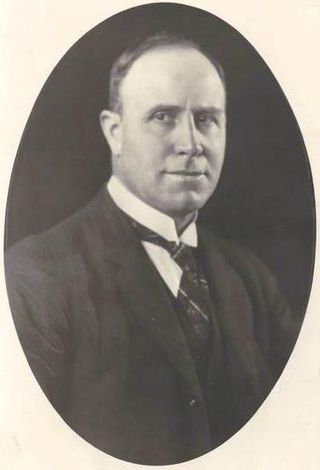
Sir Harry Sutherland Wightman Lawson KCMG, was an Australian politician who served as Premier of Victoria from 1918 to 1924. He later entered federal politics, serving as a Senator for Victoria from 1929 to 1935, and was briefly a minister in the Lyons government. He was a member of the Nationalist Party until 1931, when it was subsumed into the United Australia Party.
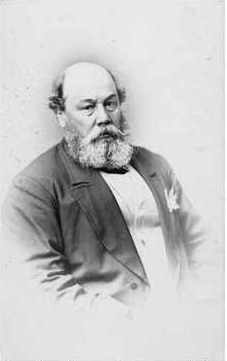
Sir Arthur Blyth was Premier of South Australia three times; 1864–65, 1871–72 and 1873–75.

Ivor Warne-Smith was an Australian footballer who played for the Melbourne Football Club in the Victorian Football League and for the Latrobe Football Club in the North-Western Football Union in Tasmania. During his time with Melbourne he won two Brownlow Medals, played in their 1926 premiership side, was captain-coach of the club and represented his state of Victoria on numerous occasions. Warne-Smith remained involved with the club for the rest of his life and was named in the Melbourne Football Club Team of the Century. He was also named in the Tasmanian Team of the Century. Warne-Smith fought in both World War I and World War II.
James Martin Devaney was an Australian poet, novelist, and journalist.
The Register, originally the South Australian Gazette and Colonial Register, and later South Australian Register, was South Australia's first newspaper. It was first published in London in June 1836, moved to Adelaide in 1837, and folded into The Advertiser almost a century later in February 1931.
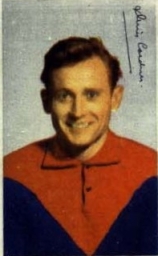
George Denis Pruen Cordner was an Australian rules footballer, industrial chemist and diplomat.
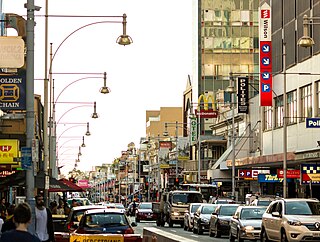
Hindley Street is located in the north-west quarter of the centre of Adelaide, the capital of South Australia. It runs between King William Street and West Terrace. The street was named after Charles Hindley, a British parliamentarian and social reformist.

Richard Cameron Wardill was an Australian rules footballer and coach who played for the Melbourne Football Club in the Victorian Football League (VFL).
Sir Arthur Dean, was an Australian lawyer, noteworthy as a Justice of the Supreme Court of Victoria and Chancellor of the University of Melbourne.

Herbert Michael "Bert" Cremean was an Australian politician. He was a Labor Party member of the Victorian Legislative Assembly for the districts of Dandenong (1929–1932) and Clifton Hill (1934–1945). He was Deputy Premier of Victoria for four days in September 1943.
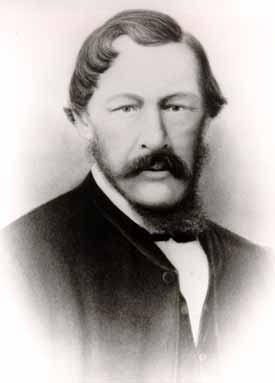
Andrew Murray (1813–1880) was an Australian journalist.
Norman Macgeorge was an artist and art critic in the colony and State of Victoria.
Sir Richard Linton was a New Zealand-born Australian politician.
William Hancock (1863–1955) was an Anglican priest in Australia, most notably Archdeacon of Melbourne from 1928 to 1935.
References
- ↑ People Australia
- ↑ Crockford's Clerical Directory 1929 p611: Oxford, OUP, 1929
- ↑ Australian Dictionary of Biography